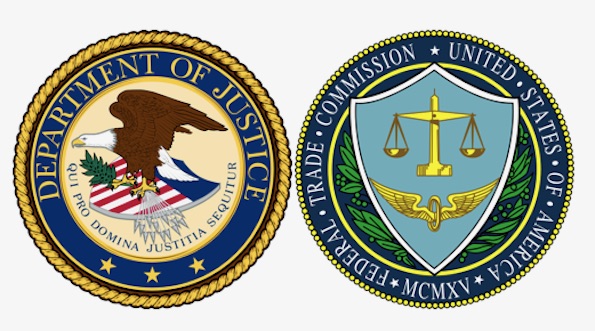The Antitrust Case Against Google’s Adtech Business, Explained
This week the Senate will hold a hearing into potential anticompetitive conduct by Google in its display advertising business—the “stack” of products that it offers to advertisers seeking to place display ads on third-party websites. It is also widely reported that the Department of Justice is preparing a lawsuit against Google that will likely include ... The Antitrust Case Against Google’s Adtech Business, Explained
In Defense of Usage-Based Billing
In the face of an unprecedented surge of demand for bandwidth as Americans responded to COVID-19, the nation’s Internet infrastructure delivered for urban and rural users alike. In fact, since the crisis began in March, there has been no appreciable degradation in either the quality or availability of service. That success story is as much ... In Defense of Usage-Based Billing
The Covidien/Newport Merger: Killer Acquisition or Just a Killer Story?
[TOTM: The following is part of a blog series by TOTM guests and authors on the law, economics, and policy of the ongoing COVID-19 pandemic. The entire series of posts is available here. This post is authored by Geoffrey A. Manne, (President, ICLE; Distinguished Fellow, Northwestern University Center on Law, Business, and Economics); and Dirk Auer, (Senior Fellow ... The Covidien/Newport Merger: Killer Acquisition or Just a Killer Story?
Towards an Organ Procurement and Transplantation Network Analogue For Allocation of Emergency Medical Resources
[TOTM: The following is part of a blog series by TOTM guests and authors on the law, economics, and policy of the ongoing COVID-19 pandemic. The entire series of posts is available here. This post is authored by Geoffrey A. Manne, (President, ICLE; Distinguished Fellow, Northwestern University Center on Law, Business, and Economics).] There has been much (admittedly ... Towards an Organ Procurement and Transplantation Network Analogue For Allocation of Emergency Medical Resources
Manne & Stout 2: Against Incorporating a Contract/Merger Equivalency Assumption in Vertical Merger Guidelines
In our first post, we discussed the weaknesses of an important theoretical underpinning of efforts to expand vertical merger enforcement (including, possibly, the proposed guidelines): the contract/merger equivalency assumption. In this post we discuss the implications of that assumption and some of the errors it leads to — including some incorporated into the proposed guidelines. ... Manne & Stout 2: Against Incorporating a Contract/Merger Equivalency Assumption in Vertical Merger Guidelines
Manne & Stout 1: The Illogic of a Contract/Merger Equivalency Assumption in the Assessment of Vertical Mergers
[TOTM: The following is part of a symposium by TOTM guests and authors on the 2020 Vertical Merger Guidelines. The entire series of posts is available here. This post is authored by Geoffrey A. Manne (President & Founder, ICLE; Distinguished Fellow, Northwestern University Center on Law, Business, and Economics ); and Kristian Stout (Associate Director, ... Manne & Stout 1: The Illogic of a Contract/Merger Equivalency Assumption in the Assessment of Vertical Mergers
Welcome to the TOTM Blog Symposium on the 2020 Draft Joint Vertical Merger Guidelines
The 2020 Draft Joint Vertical Merger Guidelines: What’s in, what’s out — and do we need them anyway? February 6 & 7, 2020 Welcome! We’re delighted to kick off our two-day blog symposium on the recently released Draft Joint Vertical Merger Guidelines from the DOJ Antitrust Division and the Federal Trade Commission. If adopted by ... Welcome to the TOTM Blog Symposium on the 2020 Draft Joint Vertical Merger Guidelines
Announcing the TOTM Symposium on the 2020 Draft Joint Vertical Merger Guidelines
Truth on the Market is pleased to announce its next blog symposium: The 2020 Draft Joint Vertical Merger Guidelines: What’s in, what’s out — and do we need them anyway? February 6 & 7, 2020 Symposium background On January 10, 2020, the DOJ Antitrust Division and the Federal Trade Commission released Draft Joint Vertical Merger ... Announcing the TOTM Symposium on the 2020 Draft Joint Vertical Merger Guidelines
Debating the FTC v Qualcomm Amicus Brief, a Summary
Qualcomm is currently in the midst of a high-profile antitrust case against the FTC. At the heart of these proceedings lies Qualcomm’s so-called “No License, No Chips” (NLNC) policy, whereby it purportedly refuses to sell chips to OEMs that have not concluded a license agreement covering its underlying intellectual property. According to the FTC and ... Debating the FTC v Qualcomm Amicus Brief, a Summary
Is FRAND Litigation a Credible Threat?: A reply to Mark Lemley, Douglas Melamed and Steven Salop
Last week, we posted a piece on TOTM, criticizing the amicus brief written by Mark Lemley, Douglas Melamed and Steven Salop in the ongoing Qualcomm litigation. The authors prepared a thoughtful response to our piece, which we published today on TOTM. In this post, we highlight the points where we agree with the amici (or ... Is FRAND Litigation a Credible Threat?: A reply to Mark Lemley, Douglas Melamed and Steven Salop
Exclusionary Pricing Without the Exclusion: Unpacking Qualcomm’s No License, No Chips Policy
Qualcomm is currently in the midst of a high-profile antitrust case against the FTC. At the heart of these proceedings lies Qualcomm’s so-called “No License, No Chips” (NLNC) policy, whereby it purportedly refuses to sell chips to OEMs that have not concluded a license agreement covering its underlying intellectual property. According to the FTC and ... Exclusionary Pricing Without the Exclusion: Unpacking Qualcomm’s No License, No Chips Policy
Why the FTC had to Abandon the Duty to Deal Argument Against Qualcomm
On November 22, the FTC filed its answering brief in the FTC v. Qualcomm litigation. As we’ve noted before, it has always seemed a little odd that the current FTC is so vigorously pursuing this case, given some of the precedents it might set and the Commission majority’s apparent views on such issues. But this ... Why the FTC had to Abandon the Duty to Deal Argument Against Qualcomm







